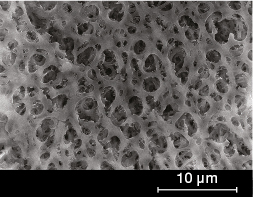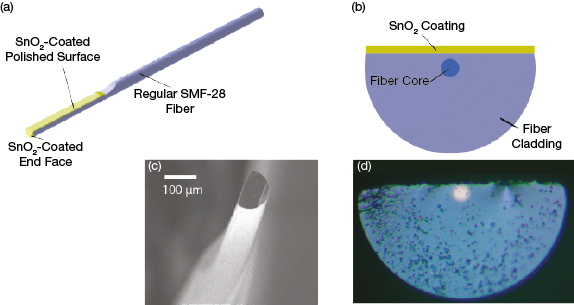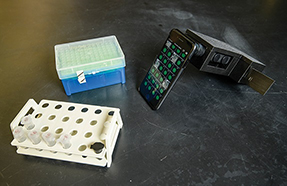Catalyzing Commercialization: Microfluidics-Based Bioanalytical Solutions Change the Game
Microfluidic devices operate at physical length scales similar to biological constituents (e.g., cells and molecules) and can manipulate solutions of these constituents within microscale channels and chambers. A microfluidic device, also called a lab-on-a-chip (LOC), takes advantage of physics at these small dimensions to detect low sample concentrations — in the nanomolar to picomolar range — with high sensitivity. LOC devices can carry out assays at extremely small volumes, with just a microliter or picoliter of fluid.
Learn MoreCatalyzing Commercialization: Membrane-Based Technologies Treat Produced Water from Oil and Gas Operations
During oil and gas production, about 7–10 barrels of polluted water are recovered for each barrel of oil produced. The amount of produced water depends on the geology of the formation and the type of reservoir. With a global oil production rate of 100 million bbl/day, the volumetric production rate of produced water is massive.
Learn MoreCatalyzing Commercialization: Tiny Optical Fiber Sensors Offer Continuous, In situ Measurement of Humidity
Humidity is a very important parameter to monitor and control when drying food products, pulp and paper products, chemicals, and other semi-moist, porous materials. It can impact drying optimization and, ultimately, product shelf life. However, humidity sensors can be unrealiable, especially when used in large industrial ovens that dry, bake, or de-water materials. Accuracy and precision, along with durability and size, are all important factors for successful automated humidity sensing.
Learn MoreCatalyzing Commercialization: Researchers Develop Rapid, Low-Cost Norovirus Detection Platform
A little bit of norovirus — the highly infectious microbe that causes about 20 million cases of food poisoning in the U.S. each year — goes a long way. Just 10 particles of the virus can cause illness in humans. While norovirus is often associated with cruise ships, it can also spread quickly through a community via its water supply. Norovirus causes about 200,000 deaths globally each year.
Learn MoreCatalyzing Commercialization: Establishing a Reference Cell Culture Platform for Biomanufacturing
The biopharmaceutical industry has emerged as a major manufacturing engine of the U.S. economy. With new biological information brought about through technology innovation and data acquisition, ample opportunities exist to improve biomanufacturing efficiencies.
Learn More



